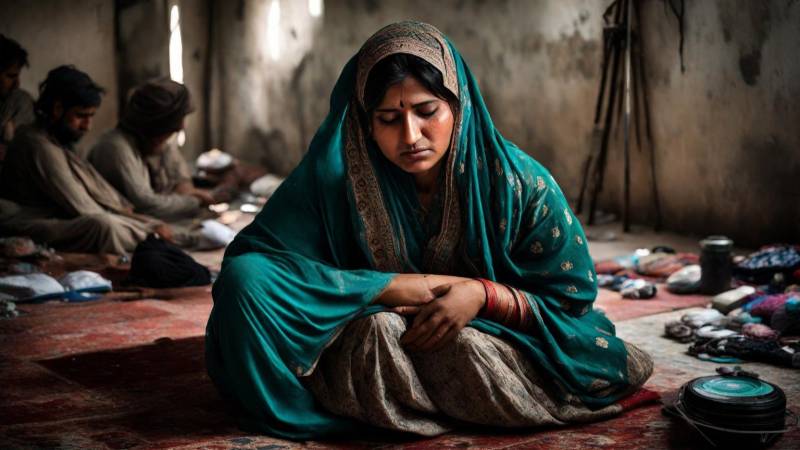
With Pakistan suffering the impacts of global warming and closing out a year that was the hottest on record, researchers in Pakistan have initiated a four-year project to examine the effects of extreme heat on maternal and child health, The Third Pole reported.
While similar studies have been conducted elsewhere in the past, this project at Aga Khan University (AKU) represents a pioneering effort in Pakistan to address the growing concerns surrounding climate change-induced heatwaves in South Asia.
Led by Jai Das, an assistant professor at AKU's Department of Paediatrics and Child Health, the study aims to analyse data from 6,000 women across various districts in Sindh province, including Karachi's low-income neighbourhoods. It will link existing data as well as conduct new research.
The project, supported by funding from the UK-based charity Wellcome Trust, seeks to fill the gap in research on the impact of rising temperatures on pregnant women, an issue exacerbated by the country's vulnerability to climate change.
Muhammad Khan Jamali, the project's research manager, emphasises the intersection of various factors affecting maternal and child health, with extreme climate conditions being a significant contributor. He highlights the challenges pregnant women face, particularly in urban areas, where inadequate cooling options and social norms exacerbate the risks associated with heat stress.
The study will equip participating women with devices to monitor temperature levels, providing valuable insights into the specific health implications of heat exposure during pregnancy. Nadeem Zuberi, vice-chair and professor at AKU's Department of Obstetrics and Gynaecology, underscores the urgent need to address the link between climate change and reproductive health, given the alarming rates of neonatal mortality and stillbirths in Pakistan.
Safia Manzoor, an obstetrician and gynaecologist, shares anecdotal evidence of increased pre-term births during hot weather, underscoring the urgency of evidence-based research in understanding heat-related health risks for pregnant women. A Lady Health Visitor, Nusrat Bano recalls a surge in premature births during a heatwave, emphasising the need for comprehensive studies to inform effective interventions.
The project aims to translate research findings into actionable strategies to mitigate the adverse effects of extreme heat on maternal and child health, offering hope for millions of vulnerable mothers and babies in Pakistan.

